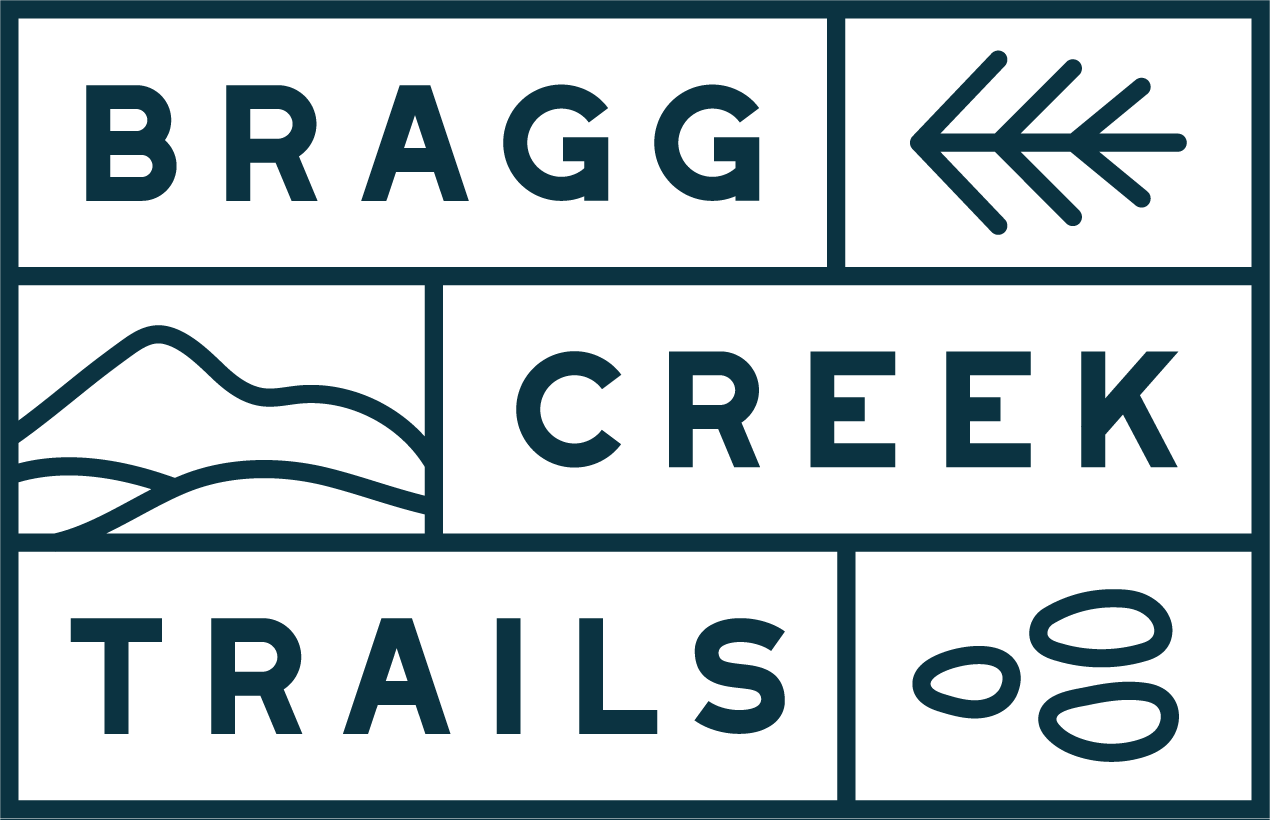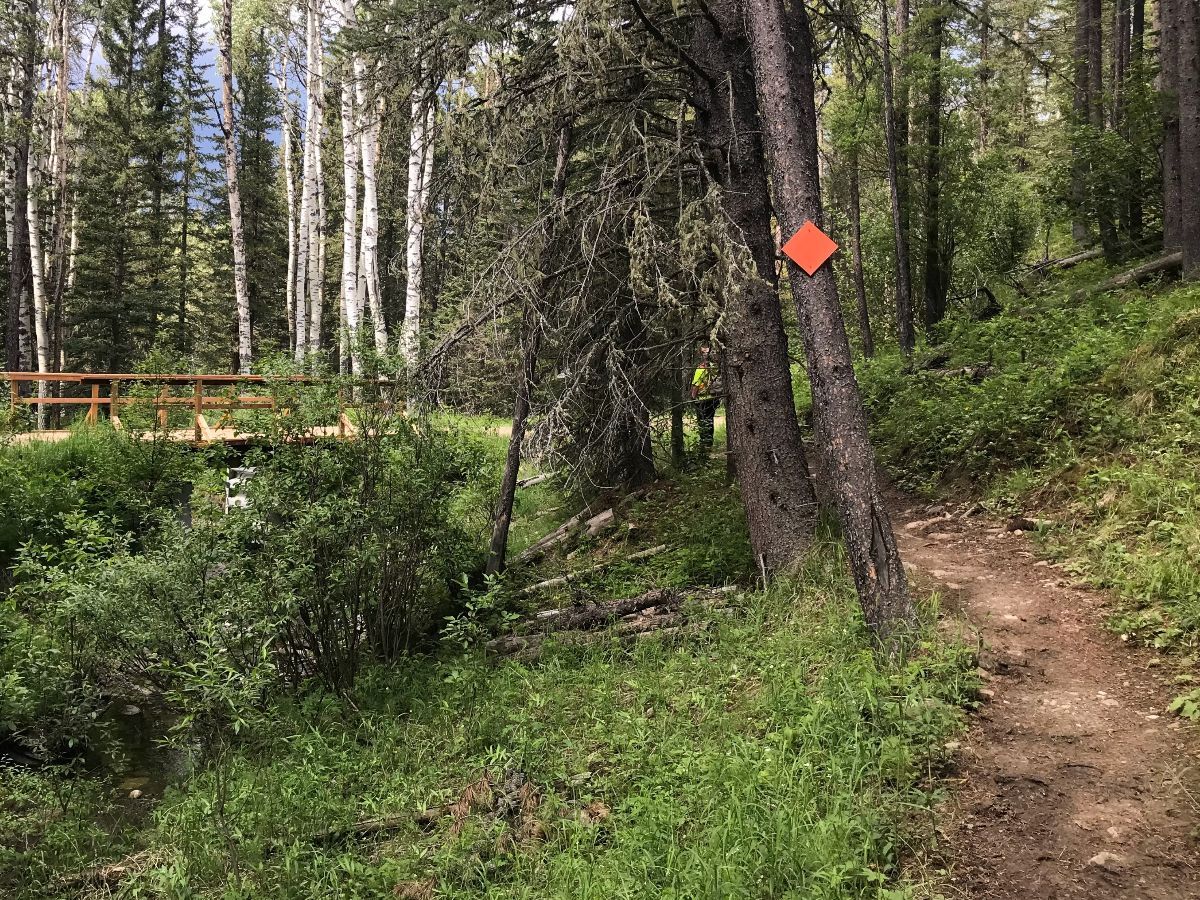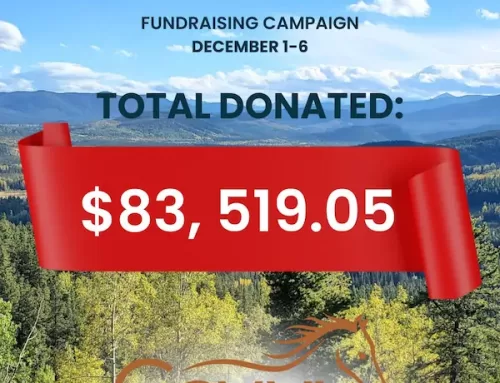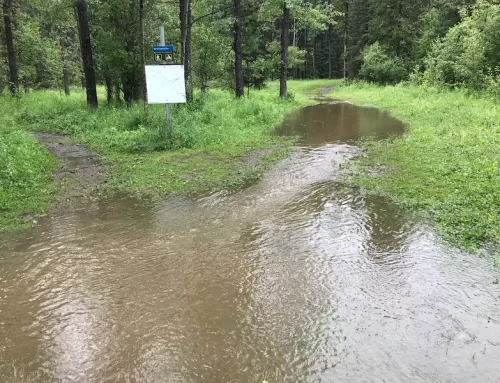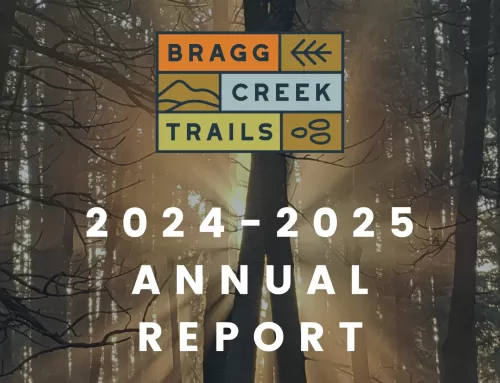Bragg Creek Trails (BCT) would like to state its position and provide our first quarterly public update on the proposed logging scheduled for 2026 in the West Bragg Creek (WBC) area of Kananaskis Country.
Bragg Creek Trails (BCT) currently intends to present a neutral position on the proposed logging scheduled for 2026 in the West Bragg Creek (WBC) area of Kananaskis Country. The Forest Management Agreement (FMA) holder for this activity is West Fraser Timber Company Ltd (WFT), formerly Spray Lakes Sawmills.
The impacted area in question is part of the Public Land Use Zone (PLUZ) which has been designated by the Alberta Government as a multi-use area. Recreation is but one approved use for this land base, with BCT being the only trails organizations having a Cooperating Agreement with Alberta Forestry and Parks to build, operate and maintain the West Bragg Creek Trails network.
Industrial activities such as timber harvesting, oil and gas, and cattle grazing are also approved activities managed in the PLUZ by the Alberta Government. These are all vital drivers of our economy BCT works within the framework of the West Bragg Creek Land Users Agreement based on the principles of collaboration and open communication to resolve concerns on activities that impact each user group. In reference to WFT and their proposed timber harvest scheduled for 2026, BCT will collaborate with all approved stakeholders, with BCT’s primary objective being to ensure mitigations that minimize the timber harvests negative impacts on WBC trails and trail users are implemented.
BCT strives towards full transparency with the public in our activities as stewards of these trails. BCT’s primary role is to advocate for the trail users to ensure that a meaningful trail experience can still be had on a changed environment. To this end, we would like to provide a few potential impacts of the logging for discussion, along with some concerns shared from within and outside of BCT.
Potential impacts
- BCT should have an opportunity to improve some trail viewscapes.
- BCT may propose re-purposing some logging roads and skid trails into new recreational trails, provided those new trails are contained in the approved WBC Master Trail Plan. These same roads and skid trails may provide short-term transportation access to facilitate the construction of some proposed recreational trails in the WBC Master Trails Plan.
- Recognizing that timber harvesting is a driver of the Alberta and local economy.
- Best practices in forest management through harvesting ensures that the forest remains healthy and resilient to wildfire. This point is debatable.
- Cut block layout impacts wildlife by changing their habitat.
- Provides more rangeland for cattle grazing longer term.
- Trail users and trails will be impacted through:
- Temporary trail disruption requiring alternate route finding
- Diminished user experience and aesthetics
- Changed landscape that no longer includes a natural forest
- Increased exposure to wind and sun
- Impacts to trail maintenance
- Increased potential for wind throw of trees
- Increased snow drifting making trail grooming difficult
- Potential for increased erosion
- Economic stimulus by recreation and tourism will likely be impacted as trail users may avoid the area:
- WBC trails are a significant source of economic activity in this region. A very conservative estimate of that economic activity is $9 million per year based on 250,000 visitors annually. Source: The Economic Impact of Tourism in Kananaskis Country in 2011 ($ 202.5 million, 1,103,000 visits). WBC estimate is 20% of the calculated economic impact per person from the 2011 study.
- BCT and the Alberta Government have invested over $5.5 million in the WBC trails since 2011 to provide a highly valued and popular non-motorized trail system for Albertans. BCT has also contributed over 80,000 volunteer hours to WBC trails.
Shared Concerns
- Public safety during harvest.
- Recreation and trails have often been an afterthought when land use decisions are made. Determining socio-economic values of both recreation and forestry requires a balanced approach.
- Forest management practices in high value recreation areas should be reviewed by policy makers.
- Preservation of watershed integrity
- BCT is held to a high environmental standard in this regard when designing, building and maintaining the trails in WBC. We expect this parallel from WFT.
- Timber harvest and temporary haul roads have the potential to negatively impact the watershed with respect to flood protection, drinking water quality, drought resiliency and riparian habitat protection.
- Increased snow catchment, rapid spring runoff and increased erosion are a concern for maintaining the WBC trail network.
- Preservation of Wildlife Corridors and Habitat
- WBC is considered an important piece of the Yellowstone to Yukon Wildlife Corridor with incredible species biodiversity.
- It is important that logging not negatively impact wildlife, corridors and habitat over the long term.
- Preservation of Biodiversity and Old Growth Refugia
- Concerns of losing the areas richness in biodiversity resonates with the general community and with BCT.
- Current logging practices that result in loss of biodiversity and damage to the biome health should concern us all.
- Impacts from wildfire:
- Considering the current forest fuel loading and wildfire behaviour modeling, WBC is considered to be an extreme risk for wildfire.
- Considering the density of the WBC trail network, a fire would be devastating to the trails and associated infrastructure.
BCT’s Action Items:
- Continued collaboration with WFT to ensure mitigations that minimize logging impacts on WBC trails and trail users are implemented. Field trips to assess each impacted trail have been set up to begin in the Spring of 2024:
- These trails include: Fullerton Loop, Elbow, Snagmore, Sugar Mama, Sugar Daddy, Sugar Pony, Ranger Summit, Snakes and Ladders, and Bobcat.
- BCT will utilize our past experience and learnings from the area logging to influence decisions on possible mitigations.
- BCT will continue to provide quarterly public updates on logging planning activities and decisions.
BCT response to public concerns suggests the following actions:
- Get engaged by:
- Attending open houses
- Contacting your MLA
- Contact the Government Ministries directly
- Alberta Forestry and Parks – Hon. Todd Loewen
- Alberta Tourism and Sport- Hon. Joseph Schow
- Alberta Environment and Protected Areas – Hon. Rebecca Schulz
